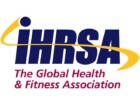As clubs around the world begin the long recovery process of reopening, COVID-19 surges are threatening to shutter doors again. Reclosures have already impacted clubs in Arizona, California, parts of China, and Hong Kong, and the threat of more surges is raising concerns for business owners. Clubs cannot rule out the possibility of a reclosure as the pandemic continues to prove unpredictable, but having a plan in place if your area is affected can help alleviate the impact to your business.
Revise Your Communications Plan
PURE International Group clubs, with locations in Hong Kong, Singapore, Shanghai, and Beijing and New York, were among some of the first clubs to close due to the COVID-19 pandemic. Many locations were allowed to open a few months later, but now are faced with a resurgence of the virus and thus, reclosures of the clubs. Communication has been the key to keeping their members engaged through these unpredictable times, according to CEO Colin Grant.
“Our first task was to develop a comprehensive communication plan—this was critical,” he says. “We need to keep members, staff and public fully and regularly informed…We sent members a weekly update via email, a social media post and a notification through our members app. We included a link to an FAQ document that we maintained and updated daily. The aim of the FAQ document was to answer as many questions as possible.
(Not sure what to include when developing your FAQ list? We wrote an article to get you started.)
PURE Group communications focused on the importance of wellness and making members feel safe.
“The message to members [is] about leading a healthy lifestyle—being active and eating well! We also talked a lot about our community and that we were in this together and we all need to help and support each other. Prior to opening we did several social media posts highlighting all the measures we have undertaken to show the clubs are safe—we needed to build their confidence,” Grant says.
